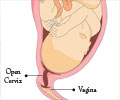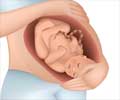Study examines the role of communicated perspective-taking (CPT) in married couples to cope with miscarriage related depression and stress.

‘Communicated perspective-taking (CPT), similar to empathy, is communicating to attempt to understand another person's point of view.’





"We wanted to examine how both men and women use CPT to make sense of loss following a miscarriage," said Haley Horstman, an assistant professor of interpersonal and family communication in the MU College of Arts and Science. "Due to the taboo nature of miscarriage, many individuals struggle with disclosing their feelings and often rely on a spouse for continual support. We studied the ways in which men and women can use CPT to cope with loss and strengthen their relationships." Study Overview
For the study, 183 married couples that experienced a miscarriage within the last 10 years completed an online survey about miscarriage, communication and coping. Couples were recruited online through pregnancy loss support groups and research networks.
To assess the degree to which married couples engaged in CPT during their conversations about their miscarriage, participants completed a scale that included measurements such as "my spouse was respectful of me when I talked about my problem."
Findings showed that when wives took their husband's perspective on the miscarriage, husbands benefited from understanding the miscarriage more positively, and both spouses had higher relational satisfaction.
Advertisement
The researchers also found that husbands and wives who were more committed to their role as parents were happier in their marriage overall. On the other hand, those people who were less committed to being parents relied more on their spouse to help them cope with the miscarriage.
Advertisement
Source-Eurekalert












